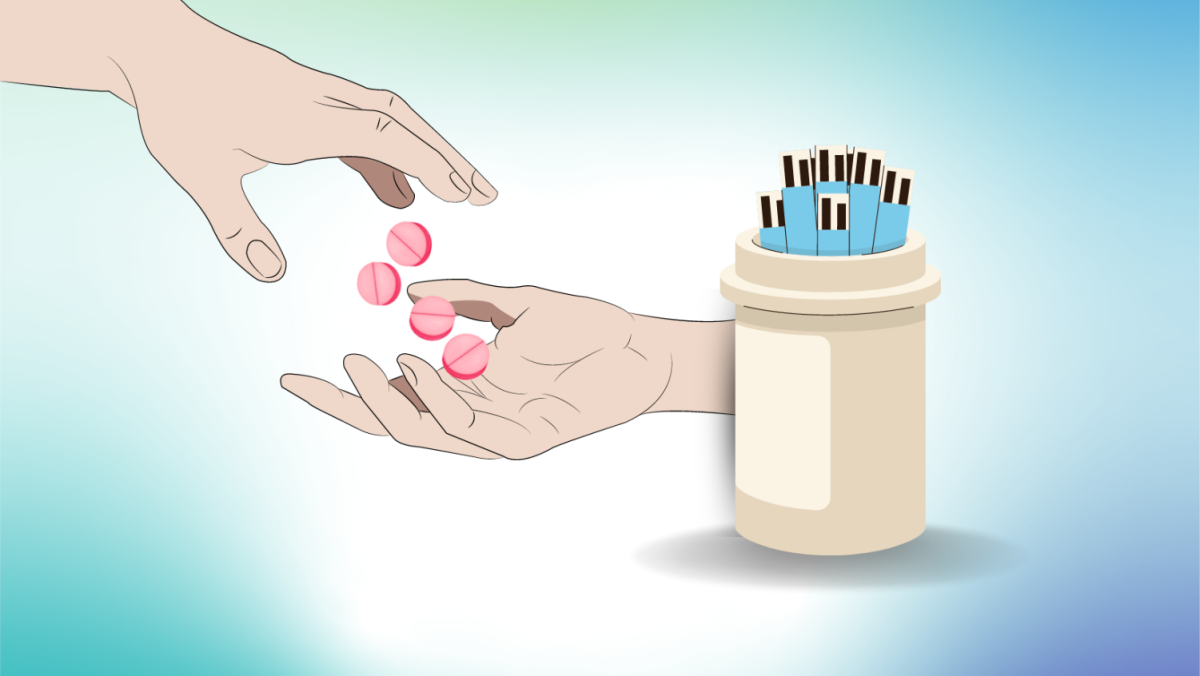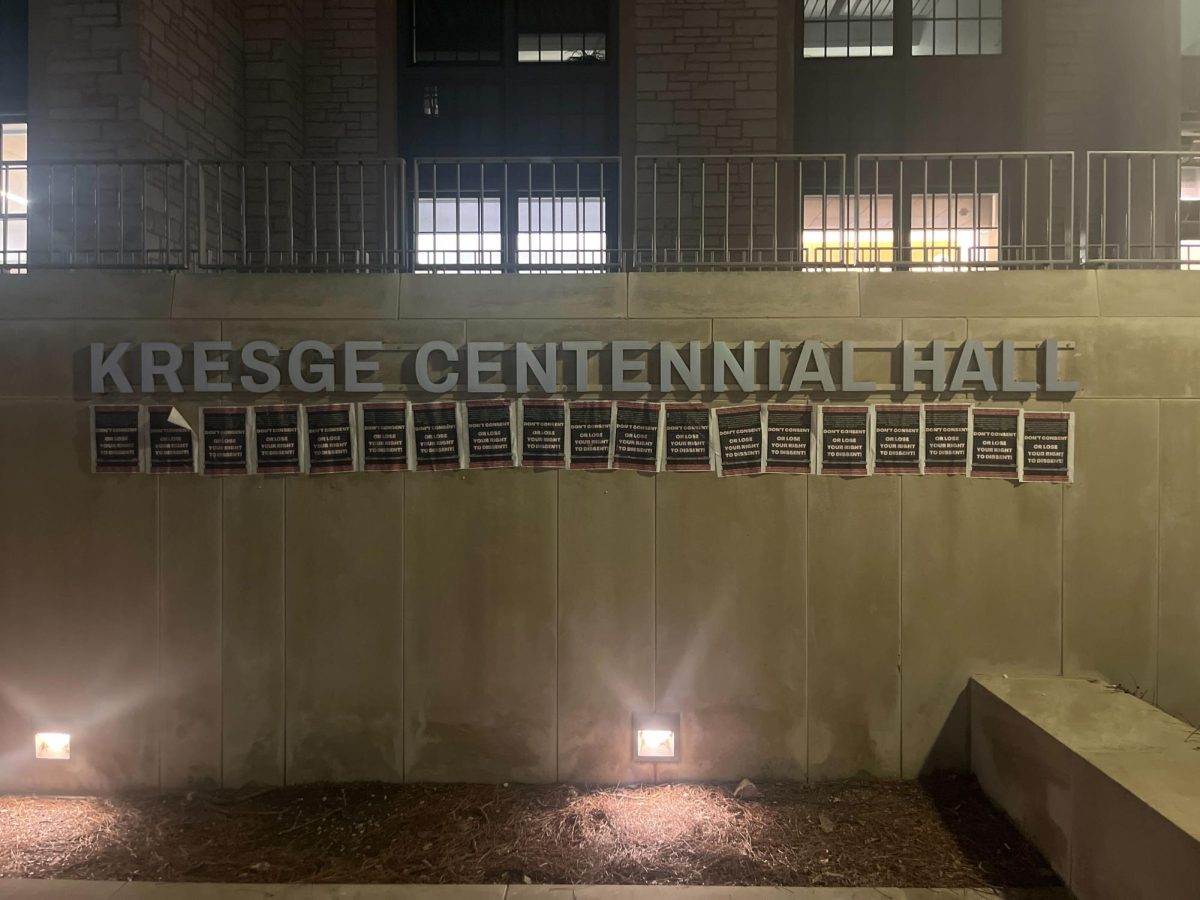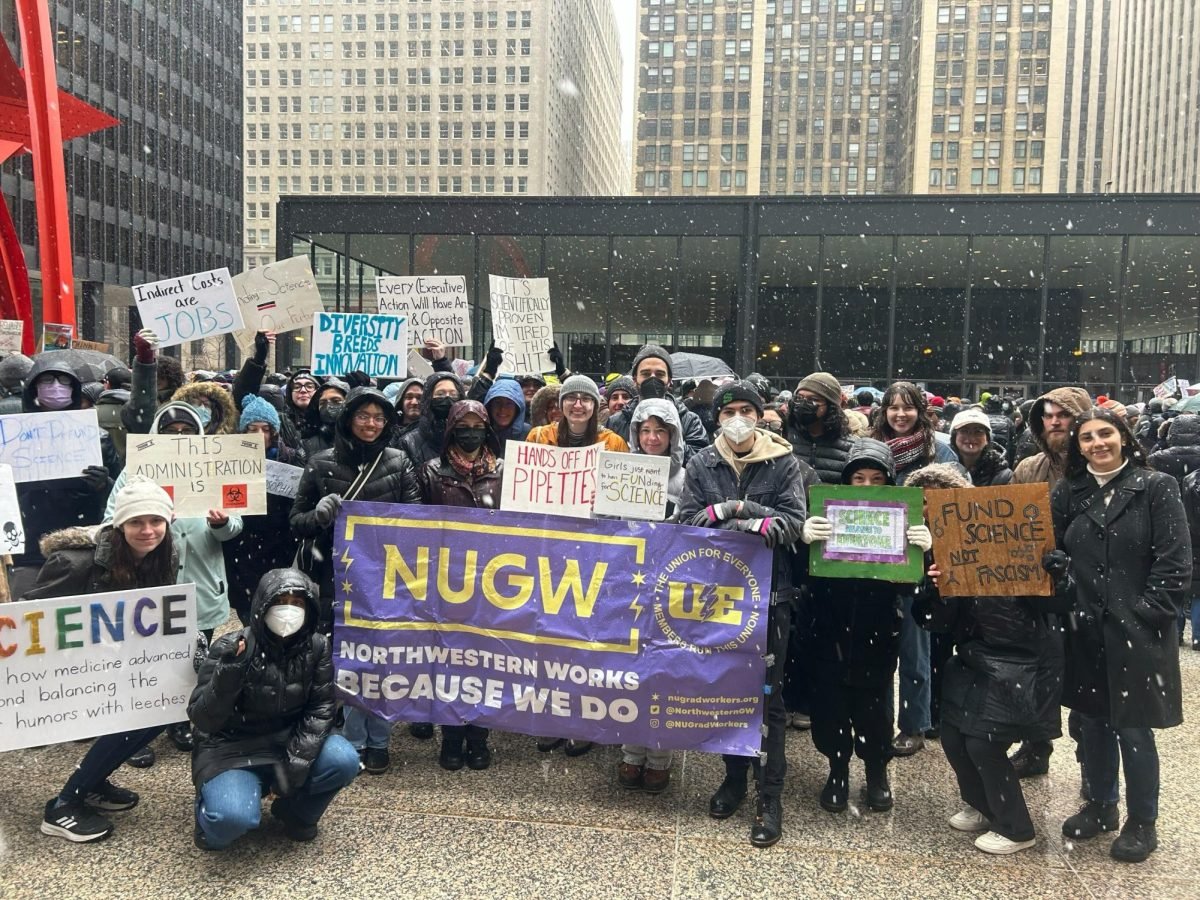After graduating high school, Weinberg senior Claire Derksen took a gap year to work as an emergency medical technician in Monroe, Michigan. During her time there, she administered naloxone, a Food and Drug Administration approved medication used to reverse opioid overdoses.
Derksen said the experience showed her the urgent need for Narcan, a brand of naloxone, to be disseminated.
“Before that, I had never heard of Narcan before,” Derksen said. “Seeing in person how quickly it’s able to reverse an overdose, like someone not breathing to being up and awake — it surprised me that there’s not a ton of downsides to using it, and yet it’s still not very accessible in a lot of parts of the country.”
In May 2023, she and Weinberg senior Sydney Schulz co-founded NU’s chapter of Team Awareness Combating Overdose.
At least twice every quarter, TACO offers opioid overdose prevention and naloxone training to students and staff who sign up.
According to 2022 data from the Centers for Disease Control and Prevention, nearly 83,000 people died from overdoses in the United States from opioids including fentanyl, a synthetic opioid prescribed for chronic pain.
“Fentanyl is something that we can’t see with the eye, and people are unintentionally taking fentanyl,” said Liz Akinboboye, TACO advisor and assistant director for substance misuse prevention at Health Promotion and Wellness. “It’s really important because people are unintentionally dying from fentanyl overdoses every single day, and the fact that it takes so little for someone to die of a fentanyl overdose is just a huge problem.”
In rural communities, including where Derksen worked as an EMT, overdose death rates are increasing at a particularly fast rate.
The Illinois Department of Public Health issued a standing order in February 2024 allowing schools to store naloxone and for trained school nurses or personnel to administer the medication in case of an overdose.
“Obviously, drugs are out there and people are likely going to use them,” Schulz said. “So the best that we can do is educate people on how to detect if there’s fentanyl in your drugs, how to safely use drugs, how to know how to help someone who isn’t safely using drugs.”
TACO trainings walk students through using the nasal spray, putting someone in recovery position and performing rescue breathing, Akinboboye said.
Akinboboye said as the organization grows, other clubs, fraternities and sororities have reached out to request group training.
“Mayfest, the group that puts on Dillo Day, reached out to us that they wanted to get their whole student group trained in Narcan to be able to deliver it if they need to on the day of,” Akinboboye said. “It’s an easy training. I’ve seen all kinds of students, from freshmen all the way to graduate students, even some staff who have signed up to get these trainings.”
After an hour of education, students leave the training with two doses of intranasal Narcan, fentanyl test strips and face shields.
Besides Narcan training, TACO hosts Red Watch Band training for alcohol bystander intervention training.
“Our office is focused on harm reduction,” Akinboboye said. “We’re not telling students, ‘No, don’t use substances.’ We’re also not like ‘Yay, go use them,’ either. We are supporting the students as in, if you choose to use it, let’s make sure you’re doing it the safest way possible.”
Email: [email protected]
Twitter: @cassiesunL
Related Stories:
— Northwestern Medicine study finds over 25 percent increase in opioid overdoses in Cook County
— ‘We see real miracles here’: local groups tackle opioid addiction
— Northwestern’s Red Watch Band facilitators to broaden focus on health, wellness in new student group







